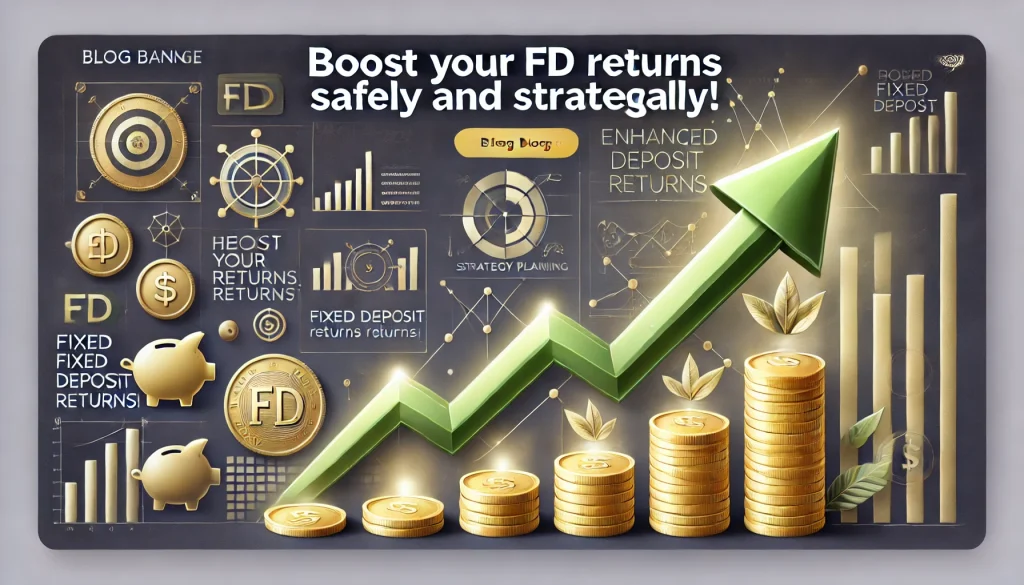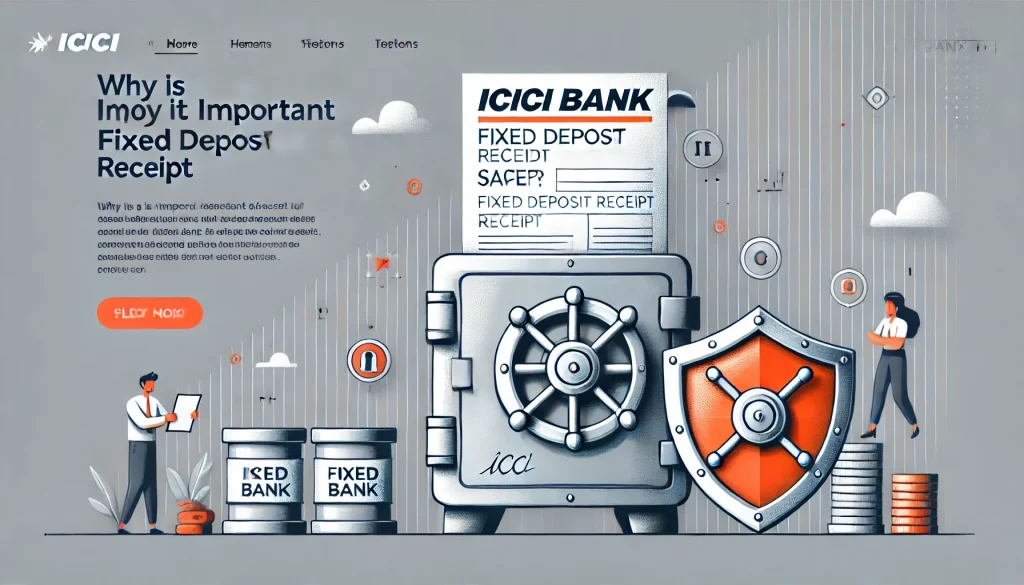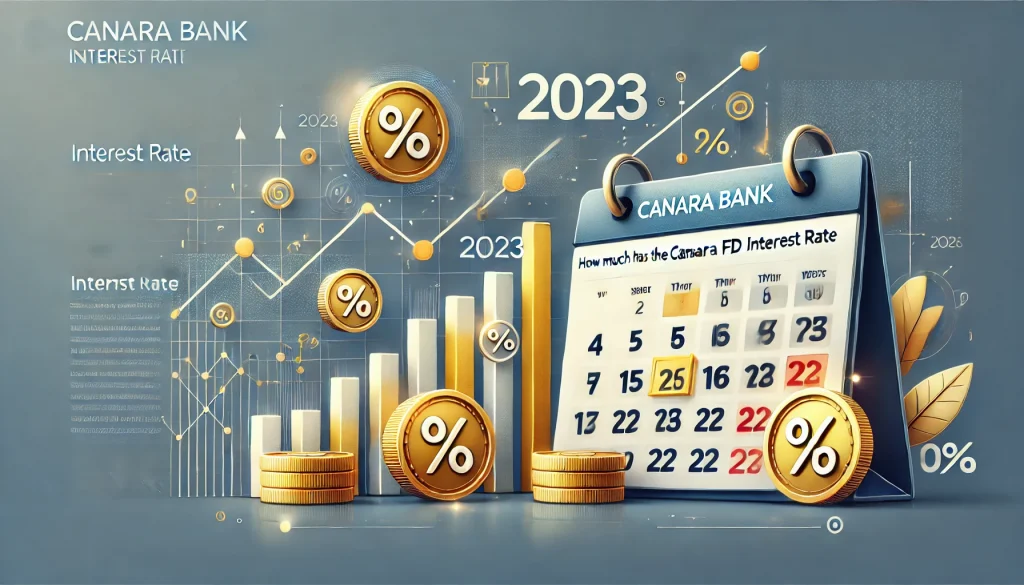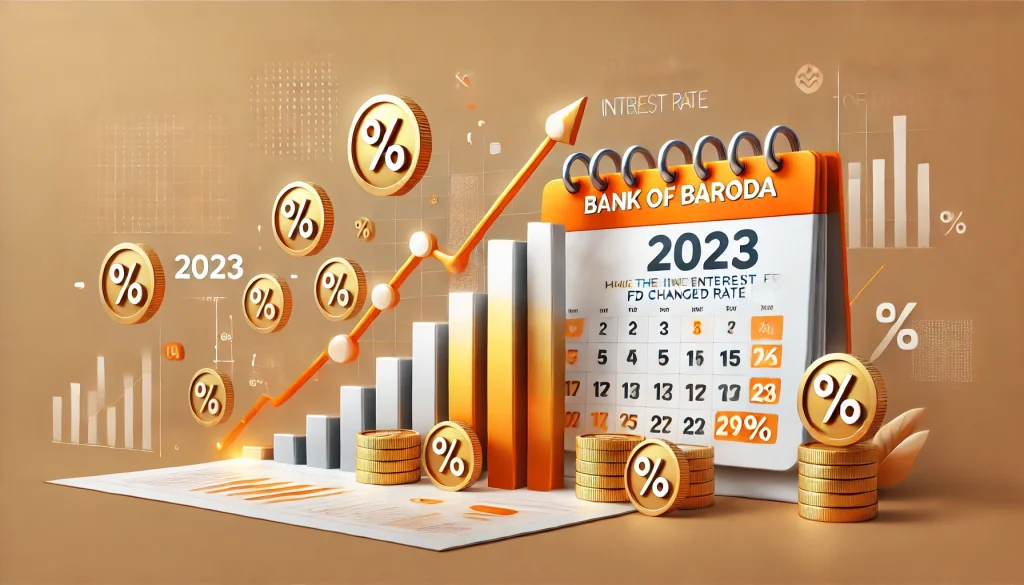
Fixed deposits offer stable returns to investors wherein the interest rates are predetermined for a set period. The interest rate remains unchanged for the entire tenure of a fixed deposit booked. This means that to get higher returns, investors have one solution: to invest in an FD offering a higher interest rate.
However, if you invest strategically, you can earn higher interest income on your fixed deposit principal. Here are some of the prominent methods to increase FD returns safely.
Safe Ways to Boost FD Returns
Here is a list of effective ways to increase FD returns safely:
Consider Reinvesting
While booking your fixed deposits, you can either choose auto-closure or auto-renewal. Choosing auto-renewal helps investors book another fixed deposit automatically when the previously booked fixed deposit matures. The tenure of the newly booked FD remains the same as the previous one. However, the interest rate applies as per the prevailing rate during auto-renewal.
On the flip side, if you choose auto-closure, the fixed deposit interest and principal amounts are credited to your savings account on maturity. Until you rebook it, the amount continues to earn savings account interest rates, which are relatively lower than fixed deposit interest rates. Thus, to increase FD returns, you can choose auto-renewal.
Submit Form 15G or 15H
Interest earned on fixed deposits is taxable. A certain part of the tax is deducted in advance as TDS (tax deducted at source). Banks deduct a 10% TDS from the interest income of investors with PAN card details submitted. Moreover, if an investor does not submit PAN card details, a 20% TDS applies.
Banks deduct TDS if the total interest income during a financial year for a non-senior citizen investor exceeds ₹40,000 and for a senior citizen investor exceeds ₹50,000. This affects the depositor’s interest income. However, to avoid paying TDS and increase FD returns safely, investors need to submit Form 15G (non-senior citizens) or Form 15H (senior citizens) at the beginning of the financial year to the bank.
Ladder Your Fixed Deposits
You can separate or ladder your fixed deposit principal to increase FD returns safely. If you have ₹10 lakhs to invest in fixed deposits, you can choose to invest ₹2 lakhs in five different fixed deposits with different tenures to maximise your returns instead of booking a single ₹10 lakh FD.
Alternatively, you can choose different banks to invest in fixed deposits and maximise your returns. For instance, Bank X offers a 5.10% interest rate, and Bank Y offers a 5.20% interest rate for a 1-year tenure. On the flip side, Bank X offers a 6.25% interest rate for 2 years, while Bank Y offers a 6.10% interest rate for the same tenure.
To maximise your returns from fixed deposits, you can invest a certain amount for 1 year in bank Y while the remaining amount for 2 years in bank X in the above example. This will ensure a low-risk, stable return from your fixed deposits.
Opt for Cumulative Fixed Deposits
Cumulative fixed deposits pay the accrued interest on maturity. The interest earned quarterly or annually is reinvested, which maximises the returns on your fixed deposits. Cumulative fixed deposits thus offer a higher interest payout compared to non-cumulative fixed deposits for a given tenure and interest rate.
Invest When Interest Rates Are High
Ensure you keep track of interest rate fluctuations before you invest in a fixed deposit. Usually, banks revise and increase their fixed deposit interest rates when the repo rate of the Reserve Bank of India increases.
Book your fixed deposit when the interest rates in the market are higher to maximise your returns. Ensure you choose a tenure that offers the highest interest rate. Nevertheless, consider your financial goal time horizon while choosing a tenure.
Additionally, you can avoid premature withdrawal of fixed deposits to increase your FD returns safely. Premature withdrawal attracts a 1% penalty on the effective interest rate, reducing the interest income for investors.
Choose Senior Citizen Fixed Deposits
Senior citizen fixed deposits offer higher interest rates than regular fixed deposits. Certain banks offer an additional interest rate for super-senior citizens. Route your fixed deposits through a joint fixed deposit with a senior citizen (above 60 years) family member as the first holder. This will help you earn a higher interest income for a given tenure and principal amount.
Invest in Corporate Fixed Deposits
Corporate fixed deposits are offered by NBFCs (non-banking financial companies). These fixed deposits provide a relatively higher interest rate to investors compared to retail fixed deposits.
Individuals, corporations and associations can invest in such FDs to get higher returns for slightly higher risks. However, ensure you check the credit rating of the company from a credit rating agency before you invest in a corporate FD. This will help increase FD returns safely.
Bottom Line
Increase FD returns safely by investing in senior citizen fixed deposits, through reinvestments, corporate fixed deposits and by laddering your investment. You can additionally choose a cumulative fixed deposit or corporate fixed deposit to earn maximum interest income on fixed deposits. Avoid premature withdrawal of your fixed deposits to prevent paying a penalty of 1% on the effective interest rate.
Frequently Asked Questions
Premature withdrawal from a fixed deposit does not affect your credit score as these are not credit-linked instruments. Only credit-linked instruments like loans and credit cards can affect your credit score.
The interest income on a fixed deposit is taxable based on your income tax slab. If your income falls in a lower tax bracket, you will have to pay a lower tax amount. On the flip side, if your taxable income falls on a higher tax slab, the tax amount that you pay on your interest income will be higher.
You can liquidate any regular fixed deposit anytime before maturity in case you have any financial requirements. However, it attracts a penalty of around 1% on the effective interest rate for that tenure. As a result, it is advisable that you break an FD with a lower interest rate based on calculations. Notably, you cannot break a tax-saving FD before maturity as it has a 5-year lock-in period.


